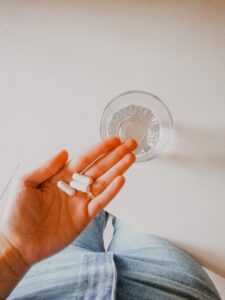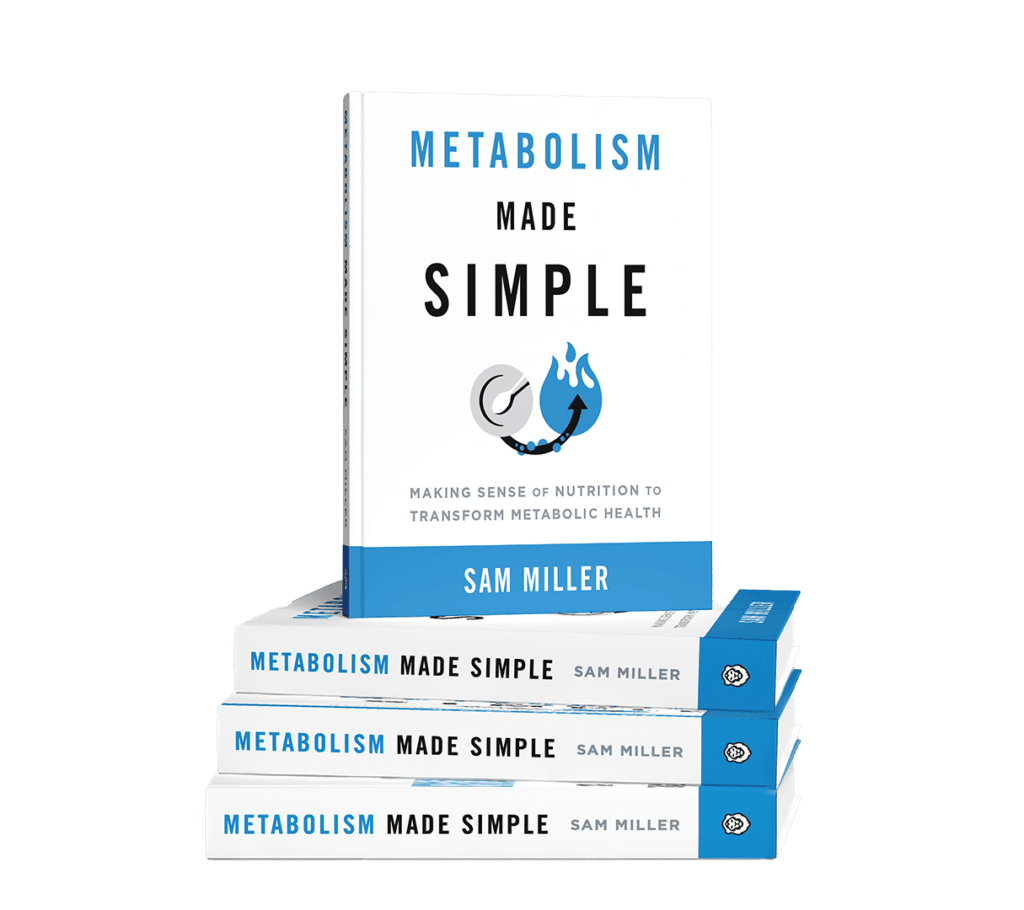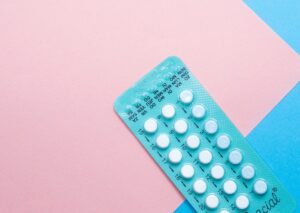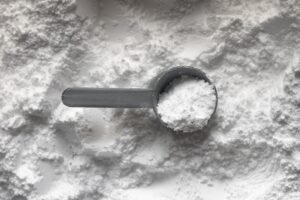The Truth About Artificial Sweeteners
Artificial sweeteners (aka sugar substitutes) can be a very emotionally heated and controversial topic in the health and fitness space.
Die-hards against them will tell you to stay away at all costs, saying artificial sweeteners can lead to health risks, such as obesity, and destroy gut health.
On the opposite side of the spectrum, you may see people slamming an energy drink in the morning, a couple of diet cokes throughout the day, a scoop of pre-workout, and several scoops of protein powder, resulting in a hefty dose of artificial sweeteners.
If we were to believe the former camp, where are all the obese bodybuilders? Then again, if we listen to the latter camp, I also think we’re missing a good bit of nuance here.
When we look at artificial sweeteners, what we have to determine is: Is there a potential use case for this product for this client, relative to their current health and physiological status quo? This post will help you determine that.
Table of Contents
Key Facts About Artificial Sweeteners
There has been a lot of research over recent years on sugar substitutes, such as artificial sweeteners. Here’s what we know so far.
- Artificial sweeteners are a good sugar substitute for people looking to reduce their caloric intake and manage or lose weight.
- Studies show that artificially sweetened beverages have at least a similar effect on appetite and energy intake to water.
- The collective evidence supports the conclusion that artificial sweeteners have no negative effect on blood sugar and insulin regulation in individuals with and without diabetes, although more research needs to be done on specific artificial sweeteners (saccharin and sucralose) combined with food, as well as looking at responders vs. non-responders (talked about in detail below).
- The reason why some observational studies have found a positive link between artificial sweeteners and type 2 diabetes and other heart-related conditions could be due to factors like obesity and the possibility that the health issues might have influenced the use of sugar substitutes rather than the sugar substitutes causing the problems directly.
- There is insufficient data on the effects of artificial sweeteners and their impact on gut health at doses relevant to human use, but more research needs to be done here as well.
Different Types of Sugar Substitutes
Let’s start by examining a few different types of sugar substitutes. I’m referring to them as sugar substitutes because some are “artificial” in that they’re synthesized in a lab, while others are natural sweeteners extracted from plants.
In terms of artificial sweeteners, we have things like sucralose, saccharin, acesulfame potassium, and aspartame. Other sugar substitutes, the natural sweeteners, include Stevia, monk fruit, and sugar alcohols (xylitol, erythritol, etc).
Not all of these sugar substitutes are the same. Each is processed differently in the body and therefore may have different health effects. Many of the health effects do overlap, but some may have unique effects apart from others that we’ll be discussing as we go along.
For some examples of differences in metabolism, acesulfame potassium is fully absorbed in the small intestine and excreted by the kidneys, so theoretically, none of it reaches the large intestine to impact the microbiome there. There are one or two studies that show mild changes, which we’ll talk about later.
Some amounts of aspartame and Stevia are broken down into separate components BEFORE they get absorbed into the body, and then the smaller components are absorbed, while fully intact molecules that remain travel into the large intestine, so we may have some potential microbiome effects there.
The artificial sweetener saccharin also has a bit of absorption, but also some make it to the large intestine, while others, like sucralose, have no absorption at all, so all of it goes to the large intestine to be excreted later. This is an important point to remember because sucralose and saccharin are two of the more unique situations we’ll talk about later.
Some sugar substitutes, like sucralose, will exert their effects almost all the way through the microbiome (since none is absorbed), while others may exert any effects that they have with a mix of being absorbed and by affecting the large intestine’s microbiome.
How Sugar Substitutes Affect Health
One of the more well-known bits of controversy surrounding sugar substitutes are these types of questions: Do artificial sweeteners worsen insulin sensitivity? Can sugar substitutes cause weight gain or prevent weight loss?
Many coaches believe sugar substitutes destroy insulin sensitivity and you’d be better off consuming a regular Coke instead of that diet Coke. On the other end of the spectrum, you have fitness enthusiasts and coaches alike crushing 12 packs of diet soda on a daily basis.
If we look at early data, the idea that artificial sweeteners negatively impacted insulin sensitivity and might increase the risk of metabolic disease mostly came from early observational studies, and we know correlation does not equal causation. These studies are mainly done through surveys asking people how many foods and beverages with artificial sweeteners they consume.
Much of the original results lack a precise degree of control, meaning they might be able to be explained by the other components of diet rather than artificial sweeteners. Some people may just switch their regular Coke for diet Coke, but the rest of their eating patterns are basically the Standard American Diet. Some might make mental justifications like, “Oh well, I drank a diet Coke with dinner, so I can definitely have those cookies after.”
When we actually look at randomized controlled trials (RCTs) and reviews of RCTs, which are amongst the highest quality of evidence, we mainly see the opposite – sugar substitutes don’t affect insulin sensitivity and blood glucose control, except for one or two very interesting studies I’ll be touching on a little bit later.
Do Artificial Sweeteners Affect Weight?
Now that we know artificial sweetener doesn’t affect insulin sensitivity on the whole, let’s take a look at BMI. Yes, BMI has some serious limitations and is basically useless amongst fit and athletic folks with above-average muscle mass. When we’re assessing things across an entire population, however, where the vast majority of individuals are overweight and under-muscled, BMI can still be a useful tool.
First, let’s take a look at a systematic review of over 13,000 pieces of data that were collected from 56 studies, with about half of them being observational and the other half being RCTs. The results were simple: sugar substitutes did not increase body fat. In fact, many trials show weight loss when compared to consuming water. This could be because artificial sweeteners and carbonated beverages help to enhance satiety and maybe help with hunger and cravings.
Next, we have a review study solely on RCTS, so a higher level of evidence. Twenty RCTs were included with about 3,000 participants. The main thing they looked at was BMI/weight reduction, which can be a sort of proxy of glucose control because we know if glucose control got worse, weight probably wouldn’t come down.
Some of the studies controlled energy intake – meaning they were calorie-restricted, whereas others had folks who were previously consuming mostly sugar-containing drinks switch to diet drinks but left the rest of their diet unrestricted.
Here’s a quote from the study; the results are pretty clear: “When comparing non-nutritive sweeteners (NNS) vs sucrose, significant weight/BMI differences appeared favoring NNS. Consumption of NNS led to significantly reduced weight/BMI differences in unrestricted energy diets, but not in calorie-controlled weight-reduction diets. Participants with obesity and adults showed significant favorable weight/BMI differences with NNS. Data suggest that replacing sugar with NNS leads to weight reduction, particularly in participants with overweight/obesity under an unrestricted diet.”
“… particularly in participants with overweight/obesity under an unrestricted diet” – This is going to be the majority of Americans. Yet another data point for the favorable use of artificial sweeteners.
Artificial Sweeteners, Insulin Sensitivity, and Metabolic Health
Let’s look a bit deeper at the control of blood glucose levels and insulin sensitivity. There’s a 2021 review that looks at 25 RCTs in humans, specifically looking at glucose control. They included studies on Stevia, aspartame, acesulfame potassium, saccharin, and sucralose.
The studies ranged from being acute in nature all the way up to 18 weeks. Of the 25 studies, 23 found no significant differences in blood glucose levels or insulin sensitivity compared with a control, so for the most part, there were no differences at all. But we need to talk about those last two studies and an additional study not included in this review.
Other Data on Artificial Sweeteners
When you’re doing an RCT, you want to minimize the variables as much as possible, so in general, when there’s a treatment arm with sugar substitute, it’s generally ONLY the sweetener consumed without the presence of other food or compounds versus the control, which is also consumed without anything else.
Interestingly, the 2 RCTs that found a decrease in insulin sensitivity had a treatment arm where they combined sucralose with maltodextrin at the same time, so the sugar substitute and a carb source. One study saw an 18% decrease in insulin sensitivity, while the other study didn’t report an exact percentage decrease but did see higher insulin levels and glucose levels at the end.
To further this, we’ll take a look at a very well-done RCT that is NOT included in this review study that looks at sucralose and maltodextrin, which shows the same thing. So we have 3 RCTs to my knowledge that sucralose paired with calories or carbs may negatively impact insulin sensitivity.
In the study that wasn’t included in that review, they actually did parallel studies, one in adolescents and one in adults. They compared three treatments – sucralose beverage only, sugar beverage only, and sucralose plus maltodextrin. It lasted two weeks. They looked at insulin sensitivity as well as MRI imaging of the brain to look at the brain response to sweet taste perception.
The reason they did this is that if there was a decreased response to the sweet taste perception in the brain, this could potentially cause people to consume more sweet things containing table sugar because they don’t get enough of the brain response indicating “this is enough sweetness.”
In the sucralose–only and sugar-only groups, there was no difference in insulin sensitivity and postprandial glucose levels after an oral glucose tolerance test at the end of the study.
However, when sucralose was consumed with maltodextrin, insulin resistance and, therefore, higher glucose levels were observed at the end of the two weeks, along with a decreased brain response to sweet taste, which was also not found in sucralose alone or table sugar alone.
In the adolescent study, the effect of artificial sweetener use on glucose levels was so strong that the researchers discontinued that part of the study halfway through because they found it unethical to continue.
Health Hazards of Artificial Sweeteners
So, why might the co-consumption of carbs and sucralose worsen insulin sensitivity?
These results may be through microbiome effects, but it’s also been observed that sucralose transiently increases the number of glucose transporters in the intestine, which may mean that glucose gets absorbed significantly more rapidly when combined with sucralose. And the quicker you absorb glucose, the faster your blood sugar rises, and the higher the spike you have.
All in all, the weight of the evidence indicates decreases in BMI and no effect on insulin sensitivity, but I think this is a really interesting line of research that needs to be explored more – combining sugar substitutes with other foods in studies to see what happens.
However, the majority of people reading this post probably have all their health and fitness ducks in a row, so to speak, and are most likely pretty insulin sensitive, to begin with. The question here is would it affect this population the same way?
We don’t know; it’s hard to tell. In all honesty, it’s probably fine to consume artificial sweeteners with carbs/food every now and then, but if you want to hedge your bets and be quite careful. Consume that sucralose-sweetened sugar-free beverage at least an hour apart from other foods.
Artificial Sweetener And the Microbiome
One of the bigger claims within the fitness space is that sugar substitutes negatively affect the microbiome. When most people hear the word “microbiome,” they instantly think of the gut, but there are other microbiomes in our body too!
Oral Microbiome
Most sugar substitutes have positive effects on the oral microbiome, reducing cavity-associated bacteria in the mouth. Sucralose actually has this effect the strongest, followed closely behind by Stevia; preventing harmful bacteria from growing. But since it’s quite obvious they have bacteria-altering properties in the mouth, it would follow they’re also altering things in the gut.
Gut Microbiome
I’m going to give you a bit of perspective on the body of research concerning artificial sweeteners and the microbiome. It’s important to understand this to evaluate future studies you may hear of that might be trying to fearmonger.
When you’re going through the entire body of artificial sweetener/microbiome literature, nearly every study you open is “In mice, this happens..” and “In rats, that happens…” and then a ton of cell culture and even computer model prediction studies, which are called “in silico” in studies. A lot of these studies do not indicate they’re mouse or animal studies in the title, either.
The data in mice is extremely compelling. We can do tons of things to mice, including easily taking samples from the interior of their actual intestines to see the actual composition within, instead of just going off of fecal samples.
We can make mice completely germ-free, meaning they don’t have a microbiome at all, and then do microbiota transplants from another mouse to assess health effects. There’s just a lot more we can do to study these things that aren’t available to do at the moment in humans or not available to do ethically, easily, or inexpensively.
Effects of Artificial Sweeteners in Animals
In mice, you see things like artificial sweeteners increasing the Firmicutes to Bacteroidetes ratio, which is a more obesogenic ratio. We can easily induce experimental insulin resistance and metabolic issues by giving certain artificial sweeteners like saccharin and sucralose, and we can transmit those microbiomes to germ-free mice and they develop the same metabolic issues, so it’s confirmed in mice that the microbiome is eliciting these metabolic effects.
We see reduced short-chain fatty acid production, which is normally gut-protective, we see increases in inflammatory molecules like quinolinic acid, and we see decreases in molecules that normally suppress reactive oxygen species.
Basically, if you were a mouse and you were reading those studies, you should be scared. If we were all mice in a country of mice, artificial sweeteners and sugar substitutes like sugar alcohols would certainly come with warnings about all the terrible effects they cause.
However, we’re not mice or rats. So this huge body of literature may not even apply to us, and spoiler alert: the vast majority of it doesn’t seem to.
In humans, we have important end-measures and health outcomes, so even if these bacterial changes occur, they aren’t having even close to the same effects in humans that they are in mice.
Couple that with the fact that it’s really hard to assess accurate microbial changes throughout the gut in humans. Most of the human microbiome studies go off fecal samples, which may only give a decent representation of the microbiome at the end of the colon, missing out on the proximal intestine.
Fecal short-chain fatty acid levels also do not exemplify the amount of short-chain fatty acids produced in the intestine. Short-chain fatty acids are largely absorbed in the intestine by a tightly regulated mechanism. So we can see the amount of limitations in human microbiome studies. All that said, however, if we filter out the stuff that may not matter as much, we still do have some things to talk about.
Effects of Artificial Sweeteners in Humans
Artificial sweeteners’ bad reputation largely comes from mice, so what do human studies say?
So far, in humans, we can see that acesulfame potassium, saccharin, sucralose, and stevia affect the microbiome composition of humans. The interesting thing about more emerging research is that there seem to be “responders” and “non-responders” to changes in microbiome and glucose homeostasis for a couple of these.
Ace-K – At the time of a 2020 review, only two studies had shown alterations in the microbiome of humans with Ace-K; there was a bit of reduced overall diversity, but these were deemed to be non-functional changes.
Saccharin – Saccharin is one of those sugar substitutes that has been shown to have responders and non-responders, but this has only been specifically highlighted by one 2014 study, which had 7 study subjects who did not regularly consume artificial sweeteners. In the study, 4 out of the 7 subjects had significant changes in microbiome status, and the same 4 had altered glucose homeostasis. I would question this because since then, significantly more human trials have come out showing no changes in the microbiome and no alterations in glucose tolerance.
However, something to consider is that these studies have larger sample sizes than the first one I talked about, and all studies report average results. Studies aren’t obligated to report on outliers or individual responses. It’s possible there could have been a few outliers in these other studies who were “responders” or had altered microbiomes and glucose homeostasis, but on the whole, the majority did not, so there were no statistically significant changes.
Sucralose – Another sugar substitute that has more recently been shown to have responders and non-responders. A 2019 study tested 34 volunteers, comparing sucralose capsules to control over 7 days. On the whole, they report glycemic control and insulin resistance were not affected during the 7-day period. At the phylum level, the gut microbiome was not modified in any group.
However, this study also chose to highlight outliers – There were responders who had higher Firmicutes and lower Bacteroidetes after the study, and these people did have a higher glycemic and insulin response after the study was completed as well. Even though the authors of this study conclude that there are “no significant changes in glycemic control and insulin resistance” because the majority did not have that occur.
They also conclude there needs to be significantly more research, specifically into the area of responders vs. non-responders and what could be going on there, because as of this moment, we have no idea why this is happening.
Stevia – The only study we have looking at the stevia plant and human microbiome doesn’t have the most powerful design. Different extracts of stevia were basically incubated with bacterial populations from the poop of healthy volunteers and then the changes were assessed, so in other words, we’re not actually looking at stevia that was consumed by people.
There were changes in the microbial populations, but they were deemed non-functional and neutral. Not to mention that stevia has been identified in other studies to have numerous other health benefits effects throughout the body: It may help with insulin sensitivity, and it has anti-cavity, antioxidant, anti-hypertensive, anti-inflammatory, and antitumor activities.
Artificial Sweeteners on IBS and Gut Health
You’ve probably heard from many gut gurus to avoid artificial sweeteners when IBS is present. Interestingly, there are nearly no human studies looking at artificial sweeteners and IBS or other gut issues. There’s a plethora of cell culture and mouse data on intestinal permeability, IBS, etc., but these have not been replicated in humans.
We do have numerous anecdotes in the health space about discontinuing artificial sweeteners and IBS symptoms residing, and avoiding artificial sweeteners is still considered to be part of an elimination protocol for IBS/SIBO/etc. by most gut health experts, but human data specifically looking at artificial sweeteners and IBS outcomes aren’t there.
The sentiment is more along the lines of, “Okay, we know artificial sweeteners may impact the microbiome, and we know changes in the microbiome happen in IBS, so…” Many studies use this logic. If you have gut issues, it might still be good to minimize or avoid these, but I just wanted to let you know human data here is very scarce.
Can You Have Artificial Sweeteners and Be Healthy
As you can see, on the whole, artificial sweeteners can certainly act as a viable sugar substitute and have positive effects.
Many people will focus on the tiny details or very small negative changes that might occur, but in the age of the obesity epidemic, I can guarantee you that if every single obese person in America right now switched out ALL sugar for sugar substitutes, we’d see reductions in obesity and weight gain.
Yes, there are some things that still need to be worked out and potentially to be careful about, like that study with sucralose combined with maltodextrin altering insulin sensitivity and the non-responders vs. responders. However, as far as the literature goes so far, the great benefits that artificial sweeteners have in potential weight reduction when substituting for table sugar far outweigh any small evils that may be present there.
References
Lesley Andrade, Kirsten M Lee, Allison C Sylvetsky, Sharon I Kirkpatrick, Low-calorie sweeteners and human health: a rapid review of systematic reviews, Nutrition Reviews, Volume 79, Issue 10, October 2021, Pages 1145–1164, https://doi.org/10.1093/nutrit/nuaa123
Kristina Rother et al. How Non-nutritive Sweeteners Influence Hormones and Health. Trends in Endocrinology & Metabolism. Volume 29, Issue 7, July 2018, Pages 455-467
Hugo Laviada-Molina et al. Effects of nonnutritive sweeteners on body weight and BMI in diverse clinical contexts: Systematic review and meta-analysis. Obesity Reviews Volume21, Issue7, July 2020, e13020. https://doi.org/10.1111/obr.13020
Allison Sylvetsky. Metabolic Effects of Low-Calorie Sweeteners: A Brief Review. The Obesity Society. Volume26, IssueS3. Special Issue: Low‐Calorie Sweeteners and Weight Management. October 2018. Pages S25-S31. https://doi.org/10.1002/oby.22252.
Ashwell, M., Gibson, S., Bellisle, F., Buttriss, J., Drewnowski, A., Fantino, M., . . . La Vecchia, C. (2020). Expert consensus on low-calorie sweeteners: Facts, research gaps and suggested actions. Nutrition Research Reviews, 33(1), 145-154. doi:10.1017/S0954422419000283
Dalenberg JR, Patel BP, Denis R, Veldhuizen MG, Nakamura Y, Vinke PC, Luquet S, Small DM. Short-Term Consumption of Sucralose with, but Not without, Carbohydrate Impairs Neural and Metabolic Sensitivity to Sugar in Humans. Cell Metab. 2020 Mar 3;31(3):493-502.e7. doi: 10.1016/j.cmet.2020.01.014. PMID: 32130881; PMCID: PMC7784207.
Becker SL, Chiang E, Plantinga A, Carey HV, Suen G, Swoap SJ. Effect of stevia on the gut microbiota and glucose tolerance in a murine model of diet-induced obesity. FEMS Microbiol Ecol. 2020 Jun 1;96(6):fiaa079. doi: 10.1093/femsec/fiaa079. PMID: 32356872; PMCID: PMC7233940.
Jodi Nettleton et al. Low-Dose Stevia (Rebaudioside A) Consumption Perturbs Gut Microbiota and the Mesolimbic Dopamine Reward System. Nutrients 2019, 11(6), 1248; https://doi.org/10.3390/nu11061248
Tandel KR. Sugar substitutes: Health controversy over perceived benefits. J Pharmacol Pharmacother. 2011 Oct;2(4):236-43. doi: 10.4103/0976-500X.85936. PMID: 22025850; PMCID: PMC3198517.
Toews I, Lohner S, Küllenberg de Gaudry D, Sommer H, Meerpohl J J. Association between intake of non-sugar sweeteners and health outcomes: systematic review and meta-analyses of randomised and non-randomised controlled trials and observational studies BMJ 2019; 364 :k4718 doi:10.1136/bmj.k4718
Michelle Pang et al. The Impact of Artificial Sweeteners on Body Weight Control and Glucose Homeostasis. Front. Nutr., 07 January 2021 | https://doi.org/10.3389/fnut.2020.598340.
Romo-Romo A, Aguilar-Salinas CA, Brito-Córdova GX, Gómez-Díaz RA, Almeda-Valdes P. Sucralose decreases insulin sensitivity in healthy subjects: a randomized controlled trial. Am J Clin Nutr. 2018 Sep 1;108(3):485-491. doi: 10.1093/ajcn/nqy152. PMID: 30535090.
Lohner, S., Toews, I. & Meerpohl, J.J. Health outcomes of non-nutritive sweeteners: analysis of the research landscape. Nutr J 16, 55 (2017). https://doi.org/10.1186/s12937-017-0278-x
Suez, J., Korem, T., Zeevi, D. et al. Artificial sweeteners induce glucose intolerance by altering the gut microbiota. Nature 514, 181–186 (2014). https://doi.org/10.1038/nature13793
Jorge Carlos Ruiz-Ruiz, Yolanda Beatriz Moguel-Ordoñez & Maira Rubi Segura-Campos (2017) Biological activity of Stevia rebaudiana Bertoni and their relationship to health, Critical Reviews in Food Science and Nutrition, 57:12, 2680-2690, DOI: 10.1080/10408398.2015.1072083
Serrano, J., Smith, K.R., Crouch, A.L. et al. High-dose saccharin supplementation does not induce gut microbiota changes or glucose intolerance in healthy humans and mice. Microbiome 9, 11 (2021). https://doi.org/10.1186/s40168-020-00976-w
Bernadene A. Magnuson, Michael C. Carakostas, Nadia H. Moore, Sylvia P. Poulos, Andrew G. Renwick, Biological fate of low-calorie sweeteners, Nutrition Reviews, Volume 74, Issue 11, November 2016, Pages 670–689, https://doi.org/10.1093/nutrit/nuw032
Daly K, Darby AC, Shirazi-Beechey SP. Low calorie sweeteners and gut microbiota. Physiol Behav. 2016 Oct 1;164(Pt B):494-500. doi: 10.1016/j.physbeh.2016.03.014. Epub 2016 Mar 15. PMID: 26992958.
Bian X, Chi L, Gao B, Tu P, Ru H, Lu K. The artificial sweetener acesulfame potassium affects the gut microbiome and body weight gain in CD-1 mice. PLoS One. 2017 Jun 8;12(6):e0178426. doi: 10.1371/journal.pone.0178426. PMID: 28594855; PMCID: PMC5464538.
Carl Frankenfeld et al. High-intensity sweetener consumption and gut microbiome content and predicted gene function in a cross-sectional study of adults in the United States. Annals of Epidemiology. Volume 25, Issue 10, October 2015, Pages 736-742.e4. https://doi.org/10.1016/j.annepidem.2015.06.083
Alexandra Lobach et al. Assessing the in vivo data on low/no-calorie sweeteners and the gut microbiota. Food and Chemical Toxicology. Volume 124, February 2019, Pages 385-399. https://doi.org/10.1016/j.fct.2018.12.005
Abigail Raffner Basson et al. Artificial Sweeteners: History and New Concepts on Inflammation. Front. Nutr., 24 September 2021 | https://doi.org/10.3389/fnut.2021.746247
Ruiz-Ojeda FJ, Plaza-Díaz J, Sáez-Lara MJ, Gil A. Effects of Sweeteners on the Gut Microbiota: A Review of Experimental Studies and Clinical Trials. Adv Nutr. 2019 Jan 1;10(suppl_1):S31-S48. doi: 10.1093/advances/nmy037. Erratum in: Adv Nutr. 2020 Mar 1;11(2):468. PMID: 30721958; PMCID: PMC6363527.
Marisa Spencer et al. Artificial Sweeteners: A Systematic Review and Primer for Gastroenterologists. J Neurogastroenterol Motil 2016; 22(2): 168-180 https://doi.org/10.5056/jnm15206.
Suez J, Korem T, Zeevi D, Zilberman-Schapira G, Thaiss CA, Maza O, Israeli D, Zmora N, Gilad S, Weinberger A, Kuperman Y, Harmelin A, Kolodkin-Gal I, Shapiro H, Halpern Z, Segal E, Elinav E. Artificial sweeteners induce glucose intolerance by altering the gut microbiota. Nature. 2014 Oct 9;514(7521):181-6. doi: 10.1038/nature13793. Epub 2014 Sep 17. PMID: 25231862.
Thomson, P., Santibañez, R., Aguirre, C., Galgani, J., & Garrido, D. (2019). Short-term impact of sucralose consumption on the metabolic response and gut microbiome of healthy adults. British Journal of Nutrition, 122(8), 856-862. doi:10.1017/S0007114519001570

















